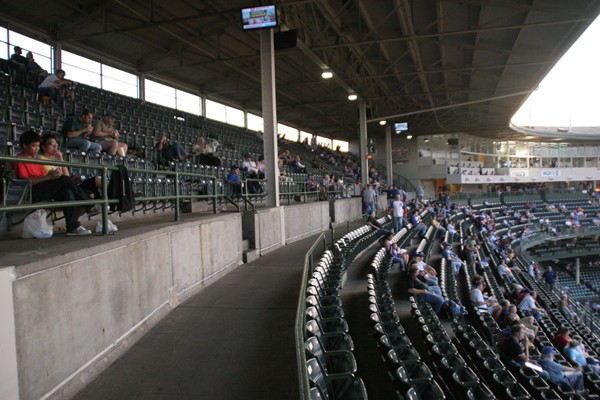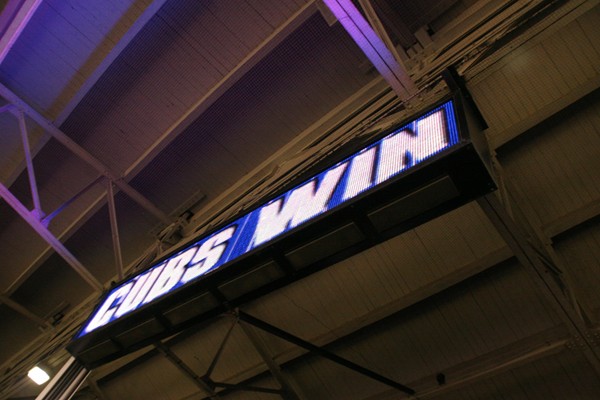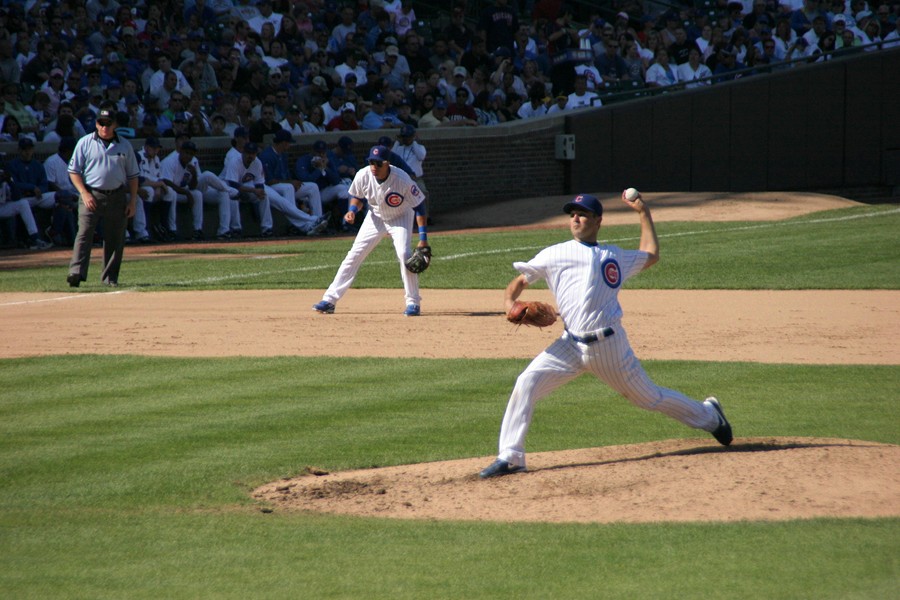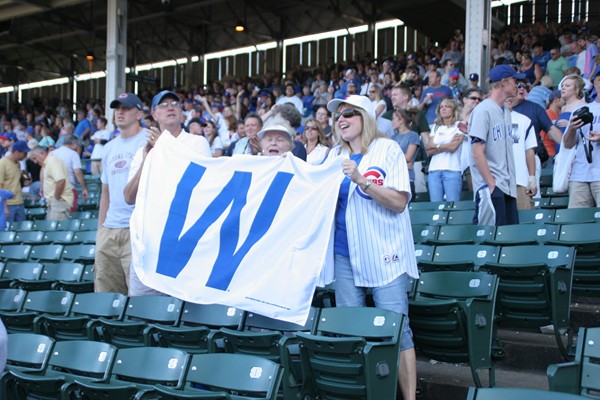Perhaps we should look at Atlanta's example:
Thirteen years later, the financial legacy of the Olympics in Atlanta is harder to detect. Like many major cities, Atlanta has fallen victim to the recession, forced to lay off teachers and city workers while slashing services. The City Council recently voted to raise property taxes to cover a $56 million budget deficit.
Winning the Olympic bid catapulted Atlanta into the big leagues, giving it name recognition around the globe. Atlanta's $1.7 billion private-funded investment in hosting the games helped revitalize its sluggish downtown and poured $5 billion into the metropolitan area's economy during the next decade, according to the Metro Atlanta Chamber of Commerce.
Atlanta's cost was less than half of the $4.8 billion Chicago has estimated it will need to raise if the city is awarded the 2016 Olympic Games.
In sum, no one knows. The Tribune doesn't analyze with much rigor what parts of Atlanta's economic problems come from unrelated factors. Nor do they tease out the direct economic benefits or costs of hosting the games. In short, it's one more frustratingly unhelpful piece of journalism about local politics.
I think our problems and our strengths look nothing like Atlanta's. Possibly Los Angeles might have been a better model; it's hard to say. I honestly don't know whether Chicago will benefit or lose from 2016. No one does. But I think we'll find out, whether we want to or not.
The Ferris Bueller house in Highland Park may be torn down:
Built from 1952 until 1954 and designed by architect A. James Speyer, the Highland Park home and pavilion that appeared in the 1986 movie "Ferris Bueller's Day Off" is for sale for $2.3 million. It is at risk of being torn down, Landmarks Illinois officials say, because several inquiries have been made regarding the demolition of the house and a possible lot split.
The Cubs won again tonight, against the Milwaukee Brewers in a very fast 8 1/2 innings. Ryan Dempster had a no-hitter for 4 2/3 innings, and a solo homer by Derek Lee got the Cubs on the board.
Oddly, the park was as empty as I've seen this year. I say "oddly" because (a) it was a gorgeous, clear, 24°C evening, and (b) this was the upper deck ten minutes before the game started:

That was a troubling sign. This was not:

Of course, it hardly matters, with the Cubs now 10 games out with fewer than 20 to play. Maybe if St. Louis keep losing we'll have another opportunity to get swept by the Dodgers in the playoffs. But probably not.
Friends called me on Saturday afternoon to invite me to yesterday's game, which had perfect weather, a Cubs win, and really friggin' good seats (Field Box, section 130).
Ted Lilly got the win:

In box seats, people bring their own "W" flags:

Lots of interesting (to me, anyway) items on the Intertubes today:
- Chicago really did have one of the coolest summers ever this year, complete with the longest stretch of sub-27°C temperatures in 124 years.
- Via The Expired Meter, Chicago ranked first in a list of the worst cities to drive in, because of our lovely red-light cameras paired with 3-second yellow lights. Before you get smug, the entire state of Florida made the list, too.
- The International Olympic Committee president said the vote will be close, and it's down to Chicago and Rio for the 2016 games. Meanwhile, the White House denies rumors that the President will go to Copenhagen to
lean on show support for Chicago.
- The Dubai Metro opened on Wednesday, but will it help? At least it goes to the airport, a feature whose importance the two largest U.S. cities have still failed to grasp.
- A story appeared in the Washington Post about a D.C.-area school that squandered a $50,000 grant, after squandering a $27,000 grant just a few years ago.
- Via Andrew Sullivan, a report that Margaret Thatcher told Mikhail Gorbachev in a secret meeting that the U.K. did not want German reunification because it would destabilize the U.S.S.R.
Whew. Back to accounting homework.
The Chicago Tribune reports this morning that craft beers, like our own Goose Island brews, have not suffered a dropoff in sales during the recession, unlike the (ahem) "flagship beers" most people consume:
Some of the industry's biggest brands lost their fizz during mid-summer, which is prime time for beer. Bud Light, the nation's best-selling beer, saw a rare sales revenue decline, 3.8 percent, during the four weeks ended Aug. 9, according to Information Resources Inc., which tracks sales in conventional supermarkets and convenience and drugstores.
Isolate the small-but-fast-growing craft sector, which makes up about 5 percent of beer sales, and the story is different.
Craft sales volume as measured in barrels increased 5 percent during the first half of 2009 compared with the same period in 2008, according to the Brewers Association, a craft beer trade group. That's down from a 6.5 percent increase a year ago, but still strong given the weak economy, analysts say.
Too bad the Trib didn't have an economist look at this. I'm not an economist either, but I think one could come up with a good explanation, along the lines of lower marginal consumption costs for craft-beer drinkers, and lower price sensitivity in general at higher levels of quality. In other words, people like me don't care about spending an extra 50c per beer for significantly higher quality, because we're after a good-tasting drink, not a cheap buzz.
Thoughts?
Oprah Winfrey has gotten the city to close 400 m of Michigan Avenue, one of the busiest streets in Chicago:
The street will be closed to vehicular traffic from Wacker Drive to Ohio Street until 5 a.m. Wednesday. The sidewalks will be open for pedestrians, and there will be access to all buildings in that stretch of Michigan Avenue. The city says that it may close the Michigan Avenue bridge to pedestrian traffic during the taping of the show.
A stage will be constructed on Michigan Avenue just north of the Michigan Avenue Bridge for the show, which will tape for two hours beginning at 5 p.m. Tuesday and will be broadcast on Sept. 10. Musical artists The Black Eyed Peas, illusionist Criss Angel and Oscar winner and singer Jennifer Hudson will be guests on the show.
Here's a map of the area.
The local NPR affilliate, WBEZ-FM, ran a bit this morning in which the reporter interviewed a woman dressed as a crawfish and a man covered in silver paint, standing on a box. Who says NPR is high-brow?
Via the Chicago Tribune, Budweiser has an ad running in Ireland shot in Chicago. It's kind of fun:
I got so caught up in Parker Day yesterday I forgot to mention this bit of history:
[A] century ago Tuesday, on Sept. 1, 1909, State and Madison Streets became the base line of a new citywide grid system that changed virtually all addresses and also formed the basis for the street systems of many suburbs.
[Before then, t]he winding, bending Chicago River was the original start of the grid, but that meant addresses weren't consistent because they weren't based on a straight line, said Tim Samuelson, the city's cultural historian. When buildings were added, the city sometimes gave them numbers out of order. Street names were duplicated throughout the city, such as Lincoln Avenue and Lincoln Place.
The grid system means getting lost in Chicago takes a great deal of effort.
The Encyclopedia of Chicago has more:
The renumbering of Chicago's streets in 1909 and 1911 obviously required a great deal of preparation. Residents needing to notify correspondents of a new house number could find a variety of preprinted postcards in styles ranging from humorous to decorative to matter-of-fact. The August 21, 1909, Record-Herald headlined an article, "Postcard makers Reap Harvest on Change in City's House System."
Besides postcard makers, mapmakers also saw a dramatic rise in business as a result of the new system. This 1910 Rand McNally map shows that every eight blocks on the grid (starting from State Street and moving west) marks a major thoroughfare.
Getting someone's address in Chicago, therefore, becomes just a question of cross-streets. "I'm at 1060 W. Addison," someone says, and all you need to know to get there is, "What hundred north?" (3600, for those unfamiliar with the location.)
In fairness to cities where, for example, West Fourth and West Tenth intersect, Chicago got to start its street system from scratch—twice. Still, it does make living here seem that much more rational.
Via Gulliver, a new study of taxes levied on visitors to U.S. cities finds Chicago in the lead:
The study provides several different views of travel taxes to help readers make informed choices. The top 50 markets are ranked by overall travel tax burden, including general sales tax and discriminatory travel taxes, and by discriminatory travel tax burden, excluding general sales taxes to count only taxes that target car rentals, hotel stays and meals. Separate data are offered for central city and airport locations, as the tax regimes are often distinct.
No word on cities overseas, though the story does mention that some cities tax visitors indirectly at much higher rates.